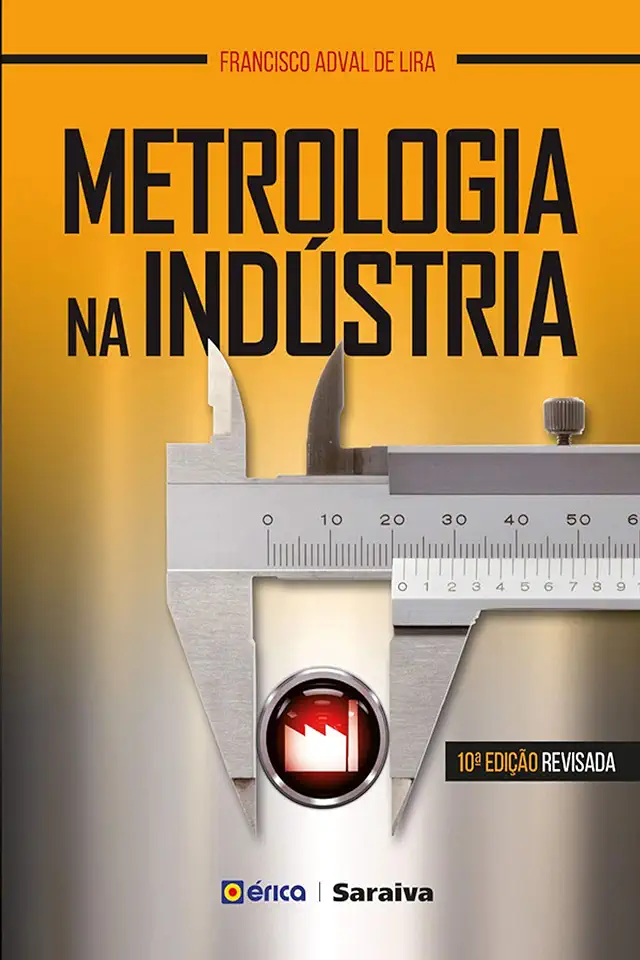
Metrology in Industry - Francisco Adval de Lira
Metrology in Industry: Ensuring Precision and Quality in Manufacturing
Introduction
In today's competitive manufacturing landscape, precision and quality are paramount to success. Metrology, the science of measurement, plays a vital role in achieving these goals by providing the necessary tools and techniques to accurately measure and control the dimensions, properties, and performance of products and processes.
The Significance of Metrology in Industry
Metrology is essential for ensuring the reliability, safety, and efficiency of manufactured products. It enables manufacturers to:
Achieve precise dimensions and tolerances: Metrology provides the means to accurately measure and control the physical dimensions of products, ensuring that they meet design specifications and functional requirements.
Ensure material quality: Metrology helps assess the properties and characteristics of materials used in manufacturing, ensuring that they meet the desired standards and specifications.
Calibrate and maintain equipment: Metrology plays a crucial role in calibrating and maintaining measuring instruments and equipment, ensuring their accuracy and reliability.
Traceability and compliance: Metrology establishes traceability to national and international standards, ensuring compliance with regulatory requirements and industry standards.
Key Concepts and Techniques in Metrology
Metrology encompasses a wide range of concepts and techniques, including:
Dimensional metrology: This involves measuring the physical dimensions of objects, such as length, width, height, and diameter.
Geometric metrology: This focuses on measuring the geometric characteristics of objects, such as flatness, roundness, cylindricity, and parallelism.
Surface metrology: This involves measuring the surface texture and roughness of objects, which is crucial for assessing factors such as wear, friction, and adhesion.
Mechanical metrology: This deals with measuring mechanical properties such as force, torque, pressure, and hardness.
Thermal metrology: This involves measuring temperature and related parameters, which is essential for processes such as heat treatment and temperature control.
Electrical metrology: This focuses on measuring electrical quantities such as voltage, current, resistance, and capacitance.
Applications of Metrology in Various Industries
Metrology finds applications across a diverse range of industries, including:
Automotive industry: Metrology ensures precise dimensions and tolerances in vehicle components, contributing to safety, performance, and fuel efficiency.
Aerospace industry: Metrology plays a critical role in ensuring the accuracy and reliability of aircraft components, where even minor deviations can have catastrophic consequences.
Medical device industry: Metrology is essential for ensuring the precision and safety of medical devices, such as surgical instruments, implants, and diagnostic equipment.
Electronics industry: Metrology enables precise measurements of electronic components, ensuring their functionality and reliability in devices such as smartphones, computers, and consumer electronics.
Energy industry: Metrology is crucial for measuring and monitoring parameters such as flow rate, pressure, and temperature in power plants, refineries, and other energy-related facilities.
Benefits of Implementing Metrology in Industry
Implementing metrology in industry offers numerous benefits, including:
Improved product quality: Metrology helps identify and eliminate defects, leading to higher-quality products that meet customer expectations and industry standards.
Reduced costs: By preventing errors and rework, metrology contributes to cost savings and increased productivity.
Enhanced efficiency: Metrology enables efficient production processes by optimizing equipment performance and minimizing downtime.
Increased safety: Metrology ensures the reliability and safety of products, reducing the risk of accidents and injuries.
Compliance with regulations: Metrology helps manufacturers comply with regulatory requirements and industry standards, avoiding legal liabilities and reputational damage.
Conclusion
Metrology is an indispensable discipline that plays a pivotal role in ensuring precision, quality, and efficiency in manufacturing. By embracing metrology, industries can achieve higher levels of productivity, reduce costs, enhance product quality, and maintain compliance with regulations.
Invest in Metrology for Your Industry's Success
Don't miss out on the opportunity to transform your manufacturing operations with the power of metrology. Embrace precision and quality by implementing metrology practices and solutions. Contact us today to learn how our comprehensive range of metrology services can help you achieve your manufacturing goals.